Mercia: Beta and After
by Terra_Cide, HSM Managing Editor
Call me late to the Mercia party.
Oh sure, I got the email with the beta code when everyone else who was a part of it did, but real life has its way of reminding you just what takes precedence in the Grand Scheme of Things™. I’d just finished moving into a new apartment, and the free wifi it came with was under maintenance, which meant unless I wanted to rearrange my whole living room – and trust me, after moving during the hottest week of the summer, that’s something you really don’t want to do – having a stable enough connection for my PS3 was out of the question. Then, my car died, which, after getting the prognosis from my mechanic, prompted me to get a new car. And just when you thought the universe was through testing me, my father passed away.
All of this occurred within a space of three weeks. And this doesn’t even begin to cover the behind-the-scenes with Issue 12, the day-to-day dealings that go along with raising a special-needs child on your own, and all the other things I can’t talk about.
These aren’t excuses. This is just life. And Home just wasn’t a priority at that time.
So now then, Mercia.
I only had the last week of said beta – with the lone exception of one night and getting to fame level 1 before rebuild – to get familiar with Mercia; we’re talking some major crunch time to get a decent enough impression of the game and a handle on its mechanics. I’m happy to report that less than one week is more than enough time to cover both those things.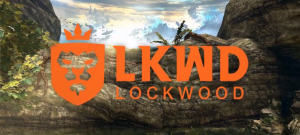
Naturally, the main thing one thinks about when entering this or any hotly anticipated thing in Home is, will it measure up to my expectations? Now this is a very delicate razor’s edge one must balance when taking part in and reviewing a game you’ve seen as a beta, because what you see, while for the most part is the finished product, there’s a lot going on that you don’t see, or perhaps do see, depending on your point of view. I was aware going in that Mercia’s release date had been pushed back on more than one occasion, and in beta, it was easy to see why. This is a very involved game for Home, with many working parts that may not have enough space on the platform to function the way they should. And as no developer in Home had created such a game, Lockwood is basically working without a roadmap. Oh sure, they’ve had a hand in bringing the Uncharted TGI to Home, but that was far simpler (and far more temporary) a game. Mercia, on the other hand, is intended for long-term use.
When it comes to Home and videogames, there’s two fairly general observations that I wish to address, as I feel they’re both relevant to discussion of Mercia. One is the common complaint that there’s no way a gamer who is dedicated to disk-based games would even be remotely interested in playing or paying for a game in Home. The other is a personal belief that videogames in general – and specifically those aforementioned disc-based games – are spoon-feeding players a tad too much.
To the first point I say: so what? You can’t please all the people all the time, and when you do, all too often, you risk stretching yourself so thin that the quality of your service overall suffers. No smart business in their right mind would do that, unless they wanted their customer base to quickly vanish. It’s the second point I wish to give further elaboration.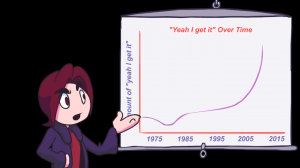
When I bought my first game for the PS3, I was astounded at how many as-you-go, in-game tutorials it contained, and as I purchased more, I soon learned that when it came to this particular console generation’s games, these things were more the rule than the exception. Yes, I get the fact that you can turn them off, and perhaps this is just the wistful wishes of an old-school gamer, but dear god, when did videogames degenerate to the point where players actually wanted the game to tell them what to do and how to do it at practically every point? What happened to when developers used more creative means to guide a gamer through their game, instead of the constant litany of “Run here, shoot this, use this button to do this, etc.” instructions constantly cluttering up the screen? Or have we, as gamers, had our brains actually reduced to mush – like our parents threatened they would years ago – rendering us completely incapable of following a direction that isn’t written or verbalized in a game?
I won’t dwell much further on this, lest I go into full-blown rant mode, but I would like to link you to a video, which visually articulates where I’m going with this. It’s contains a lot more swearing than what we at HSM are used to publishing, so I’ll give you the link (http://www.youtube.com/watch?v=8FpigqfcvlM), with the caveat to not watch this while at work, unless of course swearing like a drunken sailor is an everyday thing at your workplace.
This intuitive method of teaching you how to play is something that Mercia actually handles rather well; most modern disc games are quite pathetic by comparison in this respect. Granted, this is an RPG, so naturally, in order to provide the player with a sense of storyline, there has to be some written pieces, where basic game construction can be woven in and feel less intrusive to the player. You won’t find any excessive hand-holding at every turn in Mercia; the controls are fairly self-explanatory, and as a result, you’ll find yourself not saying, “I get it!” so often (watch that video, and you’ll understand me). Take a wrong turn? You’ll know when your way is blocked off by a waterfall. Switches and doors unlocked are indicated by a soft, swirling red glowing orb in a serpent’s mouth that turns to green. It’s subtle, but not completely obscure.
That said, there is one tiny nagging issue. There are some camera zooms which are used to point you in the direction you need to go, which after the first time you get to the particular areas they’re in, can get annoying, especially one particular instance deep in the Old Temple that occurs just as an enemy battle is starting. If there was a way to limit this to just the first time entry, or after the dungeon was cleared of enemies, that would be ideal.
Visual cues aren’t the only device Mercia utilizes to inform the player. There are music changes, familiar to every dedicated RPG player, informing you when you’re in the clear, when danger is looming, and when battle is in the process of/is commencing. There are chimes, which indicate when you or one of your magics has leveled up, or when you’ve completed a quest. Also, if you’ve a subtle ear, you can hear clues that tell you when you’ve picked up an item in a quest that requires you to pick up multiple items, or when you’ve entered a room where you stand a chance a fulfilling a quest. Having had a chance to play Mercia post-beta, these audio cues are now far more noticeable.
Quests, Weapons and Rewards
Gameplay can find itself a bit repetitive, but in a familiar, 8-bit generation sort of way (given what I’ve been through in the past month, familiar and comforting are so welcome right now they’re downright therapeutic). Quests take you further along, deeper into each dungeon each time, ratcheting up in difficulty the further you go in. Some quests don’t take you as far as your previous one; if you’re questing to obtain X number of items or kills, you may find yourself getting credit for kills (or picking up loot) performed by someone else. Whether this was what Lockwood designed into the game, or if it’s another bug, I’ve no intention to speculate upon. And here’s a little tip from me to you: don’t redeem your loot straight after returning and reporting back to the source of your quest. Wait until after you’ve accepted your new quest(s). Trust me on this: it may save you some headaches in the long run.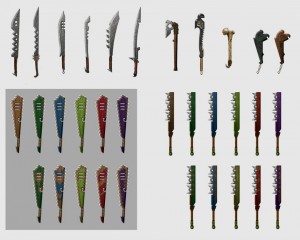
There is also a healthy balance of in-game earnable weapons – purchasable with in-game currency – and those which you have to purchase from the store with real money. What’s also very interesting is that the armor that’s available beyond the default everyone starts with, while it too can only be purchased in the store, as fame level requirements attached to it, thus prohibiting a level one from obtaining armor that gives them a complete unfair advantage. And there are armor and weapon packs as well, providing better value for your money.
The prices for all the commodities that require real money are very reasonable; with very little to no difference compared to the prices of any of Lockwood’s other offerings. This does cause me a bit of concern, as I think they may have given away the house. There’s no doubt that this game took a lot of capital to create. If Mercia remains at its current build state for very long, there could be many people who play Mercia to reach that fame level of thirty, using the quickest way possible (read: buying all the highest rated weapons and armor they’re allowed) and then forget the game altogether.
However, I think that there’s a possible check and balance to the leveling up system – especially towards the higher fame rankings – that may ensure longer play periods. With so many people currently playing Mercia now that it is no longer in beta, it’s been my observation that the rate at which monsters are currently respawning has gone down considerably since then. While in the earlier dungeons, this may be a good thing for those that are in the fame levels of twenty and up, as they don’t have to waste time with lesser enemies, it can impede a user from gaining EXP at a rate they were accustomed to in the lower levels (or even those who were a part of the beta but didn’t reach level thirty by its end). Again, there’s no telling if this was deliberate on Lockwood’s part or not, and to assume anything would be complete speculation.
The really great part is the fact that you can team up with friends to play. Norse and I blew an entire Saturday, hacking and slashing our way through bugs and lizards and having a genuinely good time. That said, it helps if you’re both on the same quest. From a personal perspective, I’ll take co-operative gaming with friends over adversarial gaming with friends, and Home has the potential to be the perfect platform for such things. Mercia is one such game.
The Aesthetics and Lore
There is something to be said about fictional worlds that draw upon ancient civilizations, taking what we know of them, and changing it into a whole new realm based upon what elements the creator derived to sculpt their own world.
Recently, there’s been such a world that I’ve fell in love with, the anime Seirei no Moribito, which is based upon the fantasy novels (specifically the first novel in the series) by Nahoko Uehashi, a writer whose background in ethnology gives the series a well thought out, well researched feel. The backdrop of the novels draws upon numerous Asian cultures: from the Himalayas and northeastern Siberia, to southwest China, indigenous Ainu, even feudal Japan, and is a masterwork in storytelling. It’s a shame only two of the books have been translated, but if you want to check out the anime, which is based upon the first book, you can do so on the EOD.
Mercia too, draws its inspiration from different cultures outside of what is generally considered traditional fantasy or RPG faire. No rehashing of Western and Central European mythology, sprinkled with a healthy dose of Norse mythology. No anime-with-magic and softcore cutscenes, like you’d find in JRPGs, either. Much of what inspires the overall “look” of Mercia comes from Central and South America; which gives it a look all its own. However, the weaponry is very much European in inspiration, although with some of the names that are coupled with the Legendary Weapons, one may wonder if someone over at Lockwood was reading the legends of Madoc, you know, just to spice things up a bit. But there’s still quite a bit of vagueness in the storyline; there is still a lot about Mercia we just don’t know about.
The environments are exquisitely lush, and although you may find that more often than not, you’re tramping through overgrown ruins, there’s a few places on the map where you wish you could just stop and take in the view. It’s just that stunning.
Mercia is still a work in progress, one that will – hopefully – expand as it’s refined. There are still technical hiccups; some are due to the sheer number of people who strained Lockwood’s servers to the limit upon Mercia’s debut, some are clearly bugs that didn’t they didn’t have time to clean up in time for the game’s release. Enemies still get stuck in walls. There are reports of people still falling into the blue nothing. The Queen’s Court Quest has a known issue with the gates. The strike zone in melee attacks needs improvement. There’s room for improvement regarding magic and the placement of stones. Doubtless many will feel that the game isn’t as complete as Lockwood’s other games were on their respective debuts, that the game over-promises and under-delivers. However, I’m less inclined to fault Lockwood for that; instead, if I were to take a wild guess, I’d fault an impossible deadline that was imposed upon them.
A game of this depth, for Home, has never been done before. This is not an “out” excusing Mercia of its flaws, but let’s be reasonable with our criticisms of them. This is a fantastically huge game as far as Home games go, and it’s obviously stretching the platform to its limits. The team at Lockwood certainly has the CV to pull off as ambitious a project as Mercia. And they have the track record that proves their commitment to providing quality, updated content to Home. However, it does feel that Mercia – both in beta and after – is like some great hulking, five-liter supercharged V8 engine that someone tried to shoehorn into the engine bay of their econobox car. Things are bound to go boom.
Back when games didn’t hand-hold so much, they were a lot more interesting to play; there was so much more “I wonder what this/these button(s) do?” discovery that was empowering, and — in its own way — a game within videogaming itself. Kind of like the multitude of games within the game that is Home. There are no formal rules – outside of the rules of conduct – to adhere to; you learn as you go. It was the experience that made it memorable. Sure, one might argue that the games of yore were too simple and therefore didn’t need them, or perhaps the reason why there’s so much hand-holding now is a result of those older games, because developers didn’t know how to clearly design their games in a way where the majority of gamers could quickly grasp how to play them. But this is 2012; you would think by now developer houses would have figured out how to do this. Plus, half the fun is in discovering something all on your own.
Mercia is a game of discovery. Have fun with it, explore within it, play it with your friends, and instead of being hell-bent upon reaching level after level until you reach the end, be in the moment with it. Even those of you reading this who have reached the level cap already, don’t just beat it and leave it. This isn’t just some game you bought used at GameStop just so you can play it to get the platinum and then return it when you’re done. Games like Novus Prime and Aurora have clubs and other sub-communities built up around them. Mercia – at the very least – deserves the same. Lockwood has said they will only expand upon Mercia if the community demonstrates enough support, and while I’m all too aware of how fickle and finite the Home community’s attention can be, I ask you to be patient with it.
For all the years the Home community has been asking for an RPG, to simply rush through it just to say that you’ve received the topmost fame level and call it done would do it great injustice. And who knows? Perhaps we’ll learn more about Mercia as time goes on. It will only grow if the community supports it.


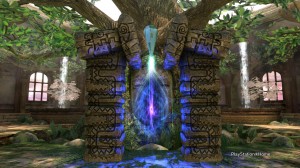
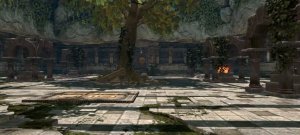
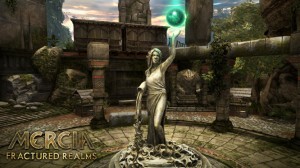
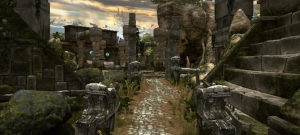
 Twitter
Twitter
I agree a hundred percent with you on this one Terra. This game is awesome, and I hope that everyone buys stuff and supports it so that they will expand it on a continual basis. Mercia is the most original game to ever hit Home, we need to give it a chance and give then the money and support they need to continue. Lockwood rocks!
nice article, im enjoying the game but as soon as fame 30 comes up, Ill be moving on, the way these home games seem to work is, released to a fanfare with everyone going woot woot, users go in and decide to buy as little as possible to complete the game or they want to complete the game quickly so go and buy the best of everything. Game gets completed all the rewards won, users move on. I should imagine the micro transactions from the first week are all important to whether there is anymore updates. Thing is, home isnt robust enough to be a serious games platform, mercia it took me 8 times going to old temple level to get a turtle to spawn, twice I got nothing to kill except time and theres big groups of users that have never used the floor buttons and the levels to open the doors because nearly all the time its already done, the only two i knew up to level 20 odd was the two everyone knows. Its a circle ill go there and complete it but wont go back after that because I want to play a more robust game with more content but developers need the money to make a more robust game with more content. Must be really hard for developers to decide how much content and how robust its going to be, versus how much money they could make, especially in the limitations of home
I love Mercia and I’m at high enough level that I will definitely be buying armor and weapons to get to the end (so far). Thanks for a great job Lockwood.